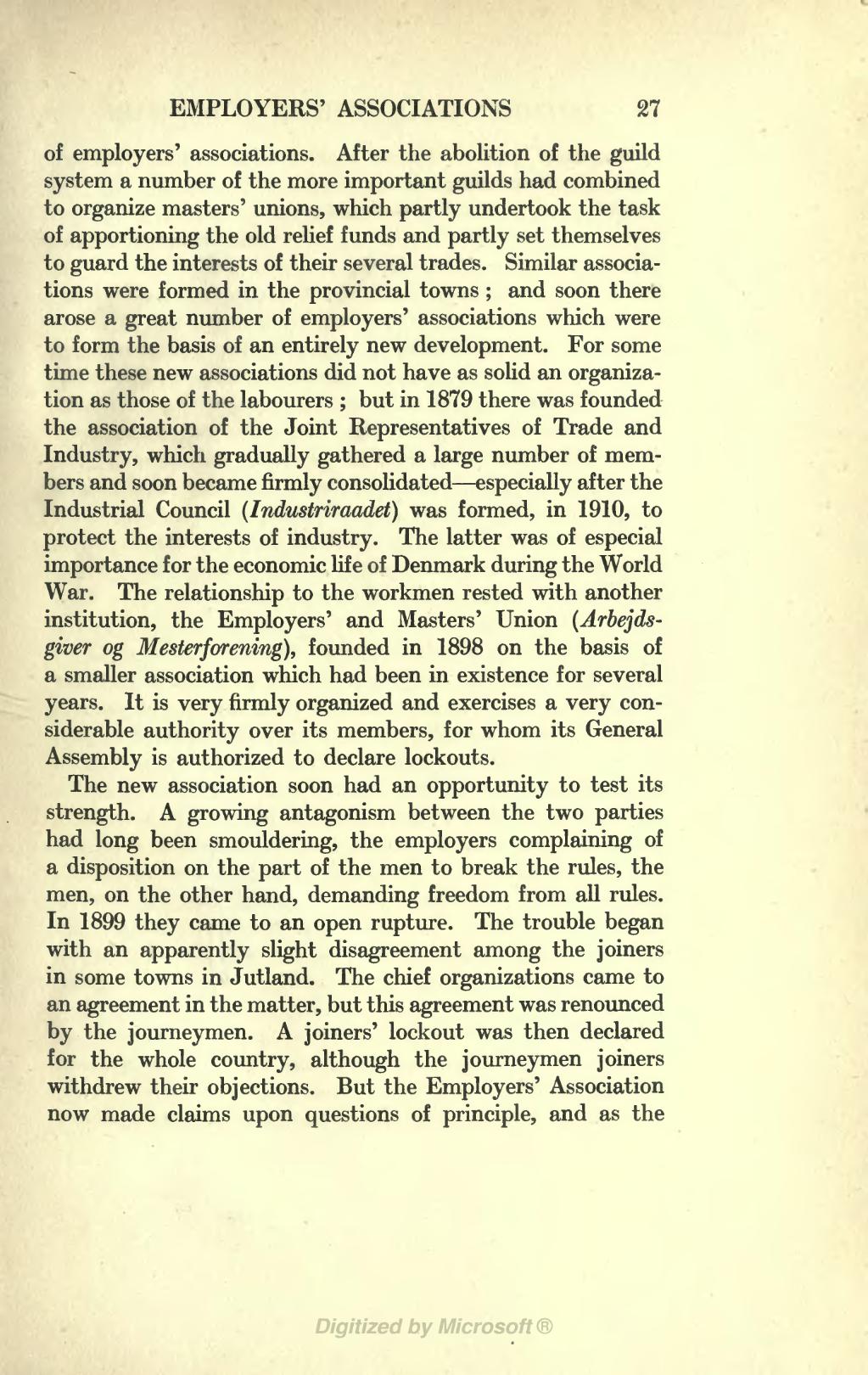of employers' associations. After the abolition of the guild system a number of the more important guilds had combined to organize masters' unions, which partly undertook the task of apportioning the old relief funds and partly set themselves to guard the interests of their several trades. Similar associations were formed in the provincial towns; and soon there arose a great number of employers' associations which were to form the basis of an entirely new development. For some time these new associations did not have as solid an organization as those of the labourers; but in 1879 there was founded the association of the Joint Representatives of Trade and Industry, which gradually gathered a large number of members and soon became firmly consolidated especially after the Industrial Council (Industriraadet) was formed, in 1910, to protect the interests of industry. The latter was of especial importance for the economic life of Denmark during the World War. The relationship to the workmen rested with another institution, the Employers' and Masters' Union (Arbejdsgiver og Mesterforening), founded in 1898 on the basis of a smaller association which had been in existence for several years. It is very firmly organized and exercises a very considerable authority over its members, for whom its General Assembly is authorized to declare lockouts.
The new association soon had an opportunity to test its strength. A growing antagonism between the two parties had long been smouldering, the employers complaining of a disposition on the part of the men to break the rules, the men, on the other hand, demanding freedom from all rules. In 1899 they came to an open rupture. The trouble began with an apparently slight disagreement among the joiners in some towns in Jutland. The chief organizations came to an agreement in the matter, but this agreement was renounced by the journeymen. A joiners' lockout was then declared for the whole country, although the journeymen joiners withdrew their objections. But the Employers' Association now made claims upon questions of principle, and as the

